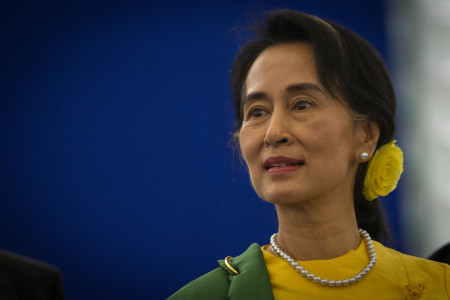
Burma’s president-elect has proposed an 18-member cabinet that will include party leader and ‘people’s president’ Aung San Suu Kyi, the former dissident who campaigned for decades to replace the military junta with a democratically elected government.
Htin Kyaw has submitted the names to parliament for a formal review and approval by legislators, after which the ministers’ cabinet positions will be decided.
At the top of the list is Ms Suu Kyi, who was not able to become president because of a constitutional clause thought to have been written in by her opponents with her in mind – she has foreign-born (British) sons. This excludes her even though she led her party to a landslide victory in a general election last November.
Ms Suu Kyi has said previously that she would be “above the president” and govern the country indirectly. Still, her entry into the government is a remarkable change. For decades the junta kept Burma in isolation and economic stagnation while refusing to listen to international counsel or homegrown demands for democracy.
Ms Suu Kyi came to prominence in 1988 when popular protests were building up. The junta crushed the protests that had turned into anti-government riots, killing thousands of people and placing Ms Suu Kyi under house arrest in 1989.
The junta called elections in 1990 but refused to hand over power when Ms Suu Kyi’s National League for Democracy party won overwhelmingly. She was awarded the Nobel Peace Prize a year later.
As Burma continued to wallow under military rule, Ms Suu Kyi was released and re-arrested several times. The junta finally started loosening its grip on power in 2010, allowing elections that were won by a military-allied party after the NLD boycotted the polls as unfair.
After more reforms, another general election was held last November, with the NLD winning a sweeping victory – a reflection of Ms Suu Kyi’s widespread public support.
The win came five years to the day since she was released from 15 years of house arrest.










